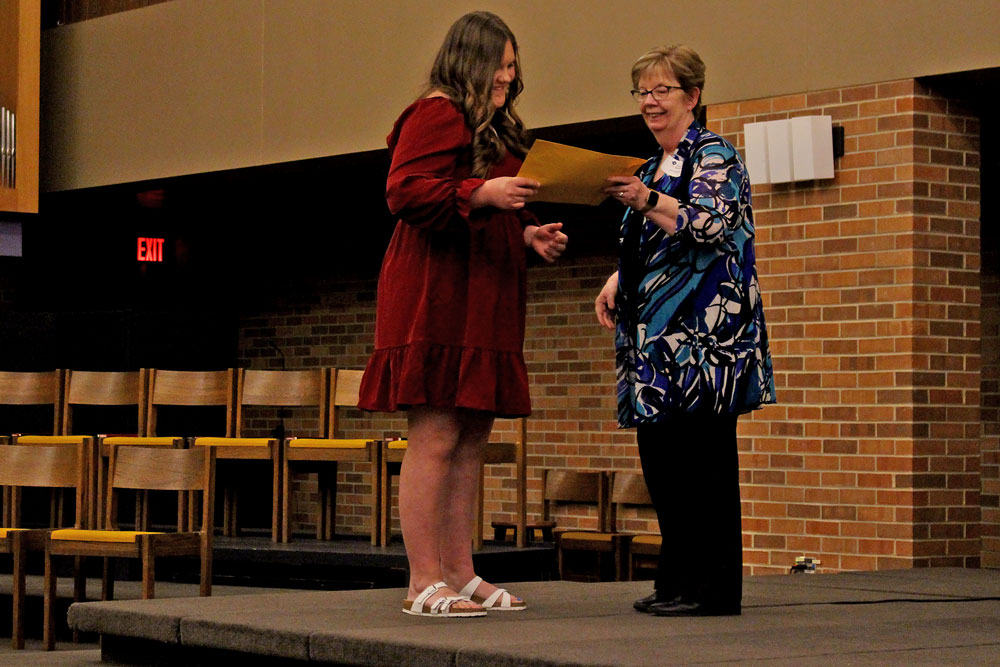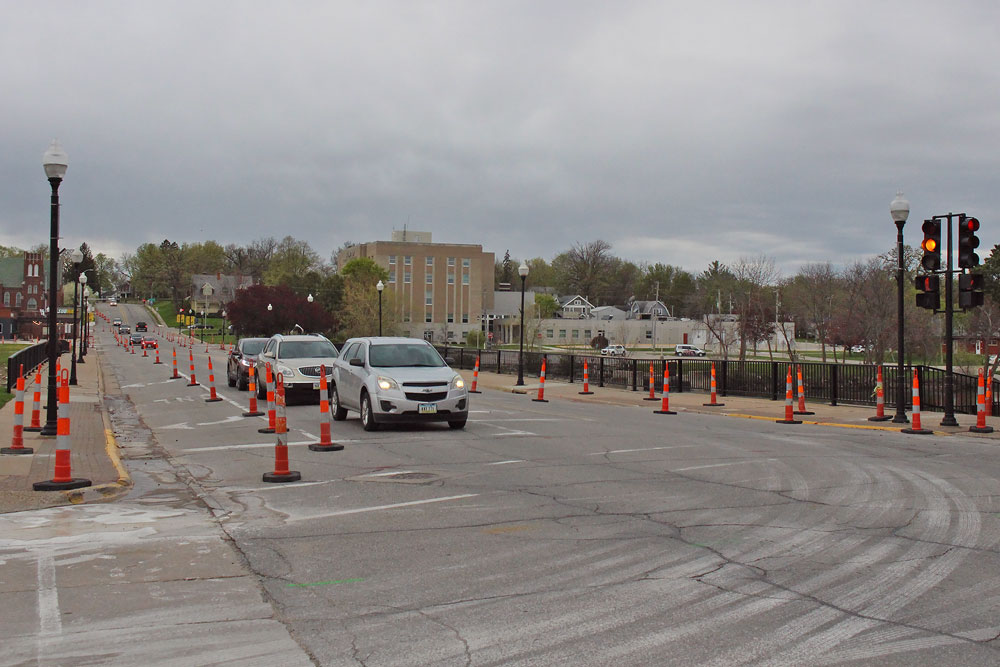Floyd County Supervisors discuss CO2 pipeline lateral line proposal
By Bob Steenson, bsteenson@charlescitypress.com
The Floyd County Board of Supervisors held discussions involving carbon dioxide pipelines at its meeting this week, and learned that the county Planning Commission plans to again discuss a proposed county hazardous liquid pipeline zoning ordinance at its next meeting on July 12.
One of the supervisors’ discussions was about a newly proposed lateral line that Summit Carbon Solutions wants to build from the previously proposed line to the Absolute Energy ethanol plant in Mitchell County near the Minnesota border.
The lateral is proposed to connect to the main line near the northeast city limits of Rockford, according to a preliminary corridor map released by Summit as part of its permit application filed with the Iowa Utilities Board.
Supervisor Chair Mark Kuhn said there are concerns about the proposed location of the main line near Rockford and the Rudd-Rockford-Marble Rock school there, and this additional lateral would seem to add to the potential for leaks or ruptures to occur in that area.
Eric Welch, pipeline engineering manager for Summit Carbon Solutions, said the lateral to the Absolute Energy plant will be a separate project on its own timeline. Public meetings will need to be held with all property owners along the corridor for that pipeline, then the company will need to go through a permitting process with the Iowa Utilities Board similar to the one it is undergoing with the main line that would cross Floyd County from east to west.
“This is a separate permit,” he said. “It will come in about a year behind the original pipeline, is my guess.”
The lateral would carry 130 million gallons of liquid carbon dioxide, removing 370,000 metric tons of CO2 from the atmosphere per year. The lateral would be 31 miles long, with 11 of those miles in Floyd County, Welch said.
He said similar additions to the original pipeline will be an ongoing part of the pipeline operation, as more companies see the benefits and want to be a part of it and have their CO2 transported away.
Kuhn noted that the Rockford City Council was on record opposing the project’s location so close to the city limits, and he said the RRMR Board of Education had approved a letter on June 6 opposing the project location near the Rockford High School and Rockford Elementary School on the east edge of the community.
“With the proposed path of the pipeline, the proximity to students and adults is of great concern to the ongoing health and well-being of those working and learning at RRMR school,” the school board’s letter says. “The proposed route of the CO2 pipeline is not in the public interest of a safe learning environment for The Rudd Rockford Marble Rock Community School District as it subjects students, staff, and community to the potential hazards of a CO2 pipeline leak or rupture.”
Kuhn said there were also concerns about large livestock feeding operations within close proximity to the proposed pipeline route for both the original pipeline and the lateral.
Welch said, “That’s why we welcome this feedback, to help determine the routes.”
Welch said the route can be adjusted within the corridor that was initially set, but other pipeline representatives have said the route can’t be changed to outside of the corridor without going back to the beginning of the permitting process, including meetings with the newly effected property owners.
At the meeting for another zoning matter, county Zoning Supervisor Jeff Sherman and staff member Jen Solomon said the next meeting of the county Zoning Commission, on Wednesday, July 12, will continue the discussion of a proposed ordinance that would regulate the location of hazardous liquid pipelines, including CO2 pipelines, within Floyd County.
That meeting will be at 9 a.m. in the EOC room of the Law Enforcement Center, and will be the second time the Zoning Commission takes up the ordinance, which was written largely by an attorney the supervisors hired to represent the county on the CO2 pipeline concerns.
At the supervisors’ meeting this week, Linda Tjaden, a former supervisor, asked the supervisors how the proposed ordinance, particularly parts of it such as setback requirements, had been determined, since there was no indication the proposed ordinance had been discussed at public meetings prior to it being sent to the Zoning Commision.
Kuhn said he had been designated by the board as the point person to work with the attorney, Tim Whipple, of Ahlers & Cooney of Des Moines, and Whipple had been involved in drafting similar ordinance for several other counties.
“My input, I thought, was very valuable,” Kuhn said, adding that he had represented the area as an elected official on the Board of Supervisors or in the Iowa Legislature for a combined total of 28 years.
Tjaden asked the other supervisors if they were OK with the proposed ordinance being referred to as having been drafted by the board.
Supervisor Jim Jorgensen said it made him a little uncomfortable to have it referred to that way.
“I didn’t have input on that,” he said. “Some people may have thought that we had input on that and we did not.”
Supervisor Dennis Keifer said he was OK with the characterization, saying, “There is no science behind safety” in this matter and “it’s just a matter of opinion.”
The farther you are away from the pipeline, the safer it is, he said.
Kuhn said the Zoning Commission can amend the ordinance to change the requirements, reject it or recommend it to the Board of Supervisors – “whatever they want to do.”
After the Zoning Commission makes its recommendation, then the supervisors have the same choices regardless of what the Zoning Commission did. The Supervisors can change the proposed ordinance, adopt it or reject it, Kuhn said.
Ryan Keller, representing another CO2 pipeline that is proposed to include Floyd County, Navigator CO2 ventures, said he just wanted to clarify that there have been scientific safety studies specifically for CO2 pipelines.
“They specialized in real world experiments that can help guide and provide greater standards than PHMSA (Pipeline Hazardous Materials and Safety Administration) has, and that’s where Navigator has utilized their initial setbacks for the routing is the guidance from that real-world, scientific experiments that have been peer-reviewed and published,” Keller said.









Social Share